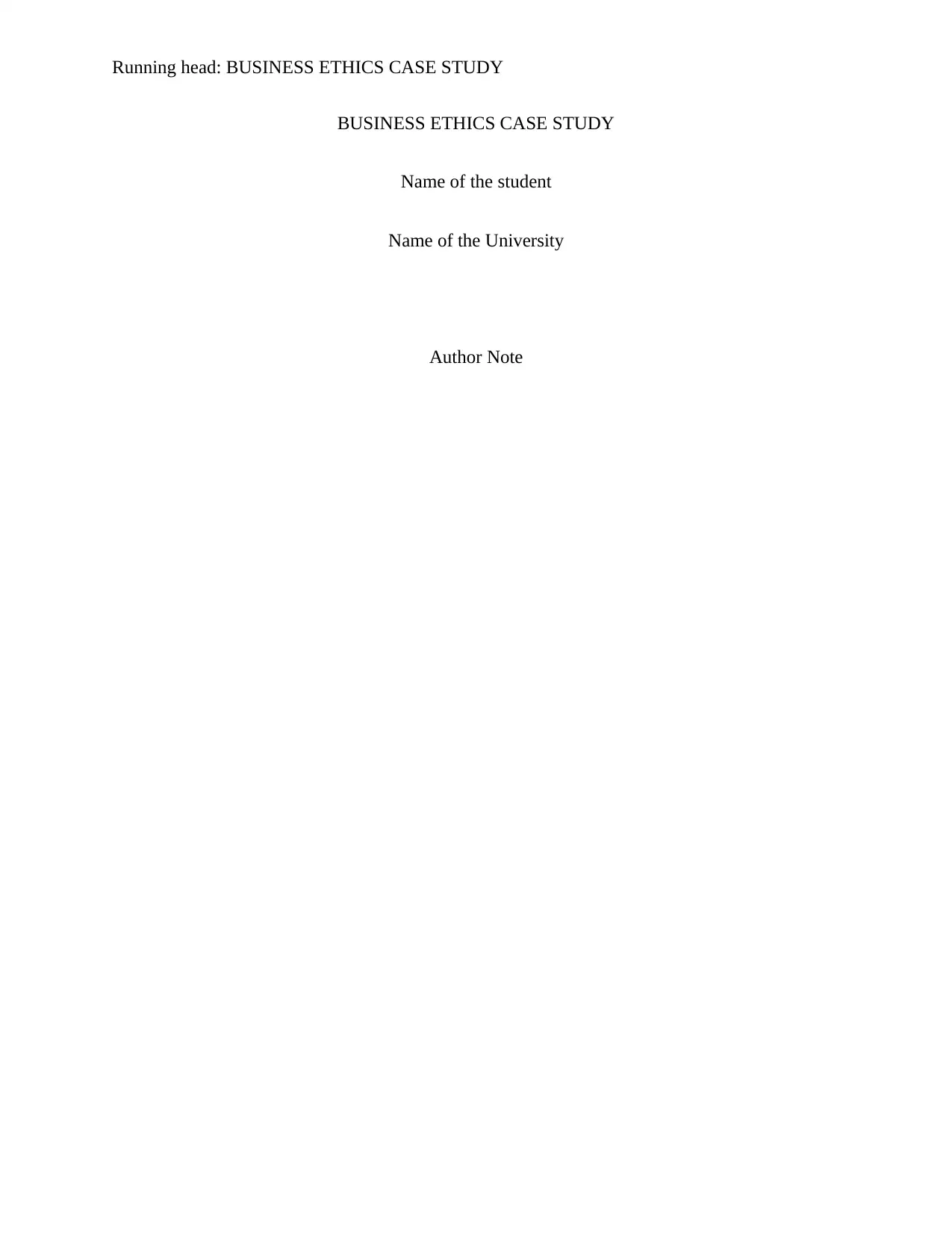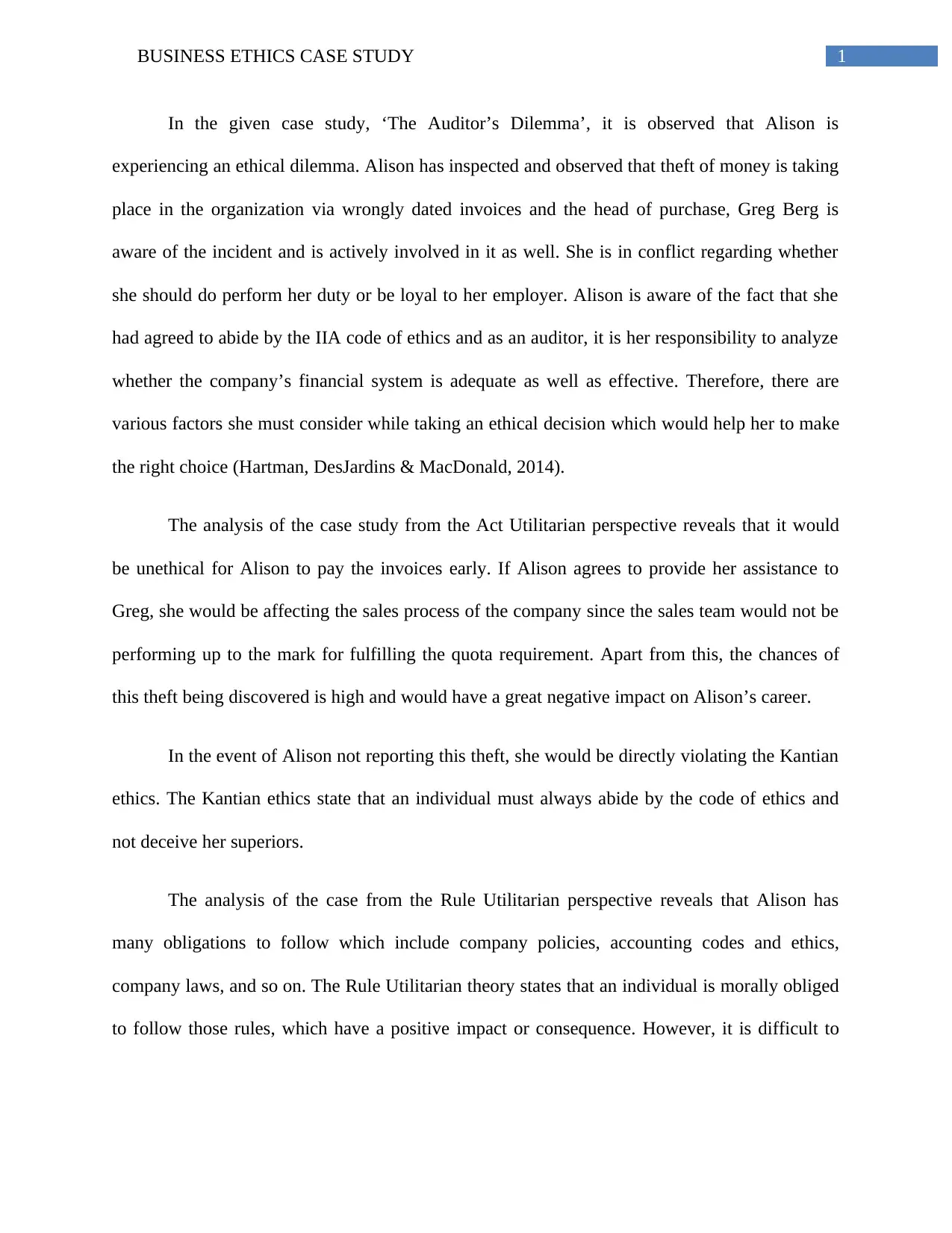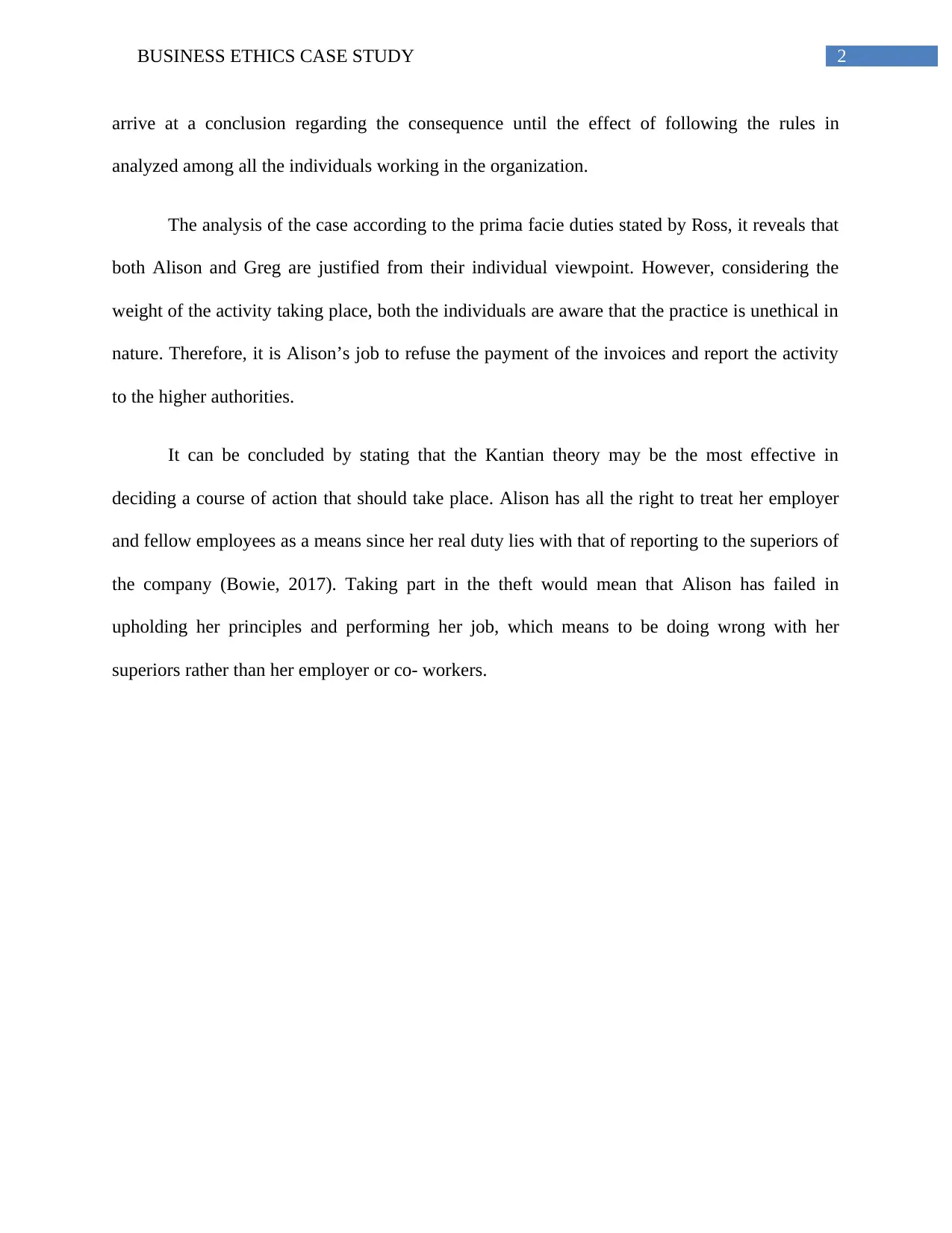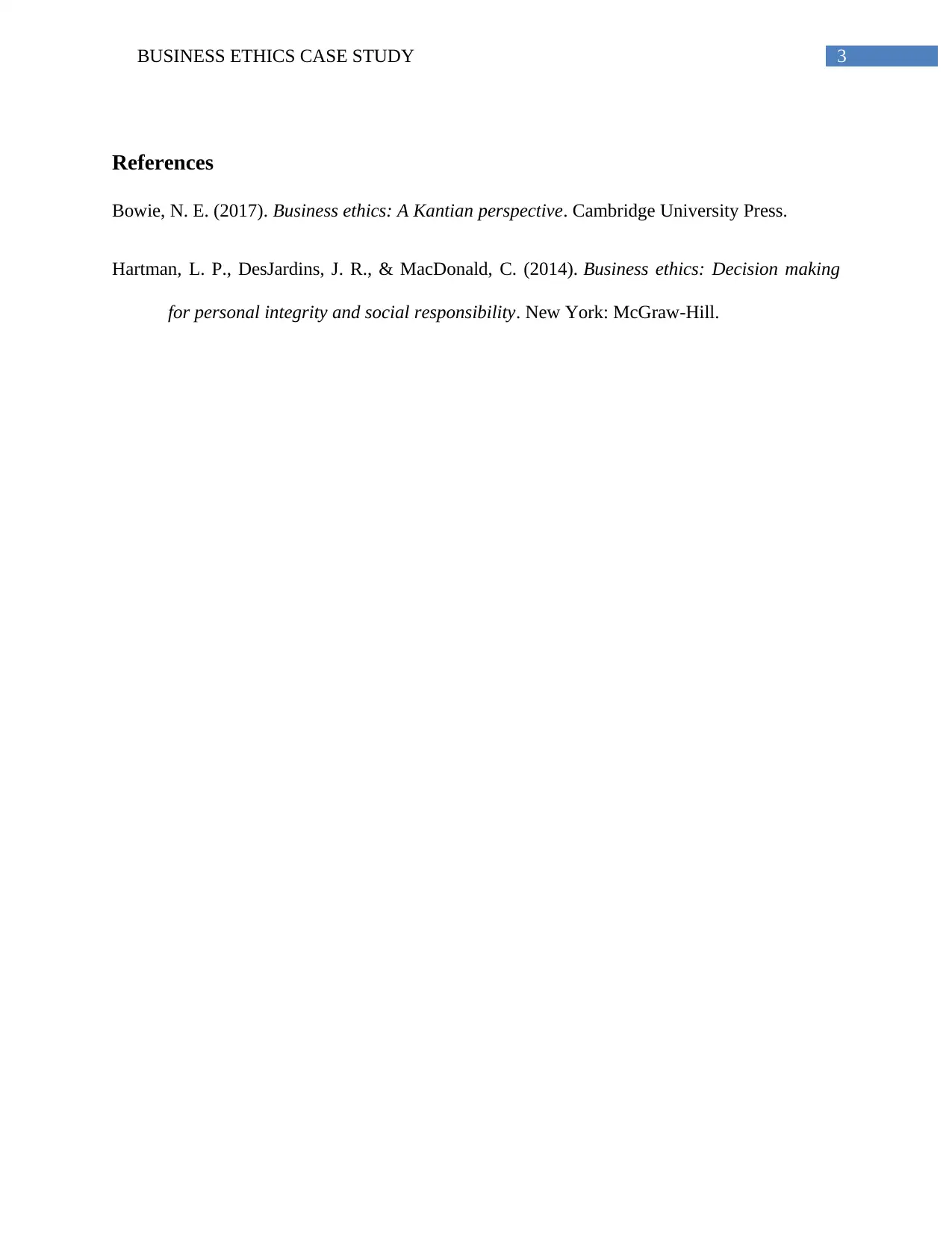Business Ethics Case Study: Ethical Dilemma and Decision-Making
VerifiedAdded on 2021/04/21
|4
|637
|73
Case Study
AI Summary
This case study, titled 'The Auditor's Dilemma,' presents an ethical challenge faced by Alison, an auditor who discovers fraudulent activities involving the head of purchase, Greg Berg. Alison is torn between her duty to report the theft and her loyalty to her employer. The analysis employs various ethical frameworks, including Act Utilitarianism, Kantian ethics, and Rule Utilitarianism, to evaluate the situation. The study concludes that Alison should prioritize her duty to report the unethical behavior, aligning with Kantian ethics. The case study also considers the implications of Alison's actions and the importance of upholding ethical principles in the workplace. The analysis considers the perspectives of both Alison and Greg, highlighting the complexities of ethical decision-making. References from Bowie (2017) and Hartman, DesJardins & MacDonald (2014) are provided to support the analysis.
1 out of 4











![[object Object]](/_next/static/media/star-bottom.7253800d.svg)